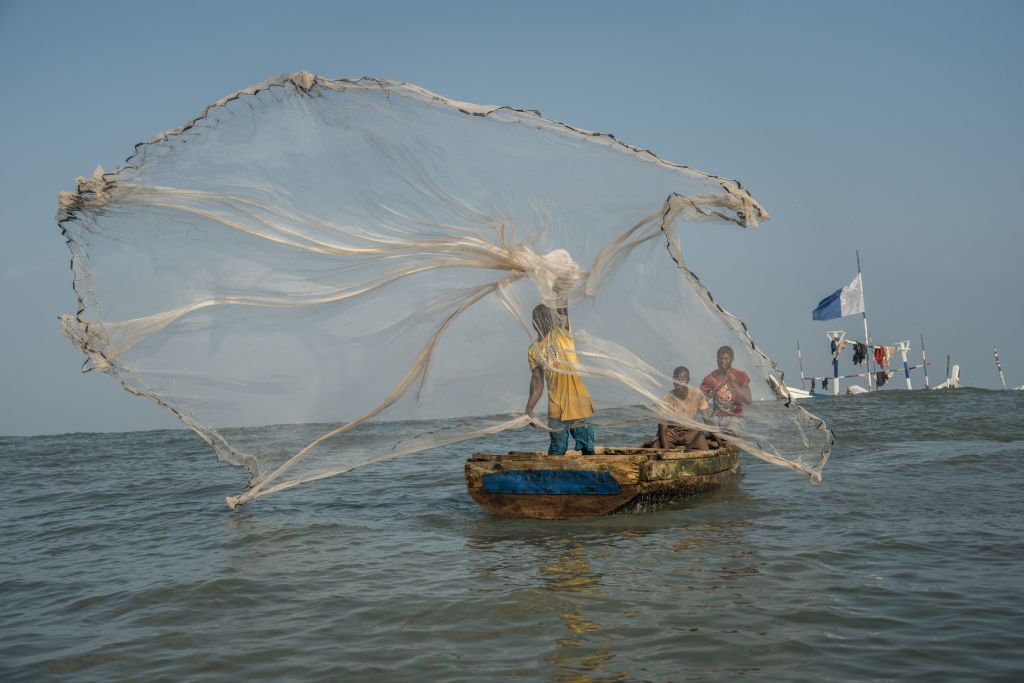ADF STAFF
Illegal fishing in West Africa has decimated marine life, threatened food security and left artisanal fishermen impoverished.
The Confederation Africaine des Organisations Professionnelles de la Pêche Artisanale, or the African Confederation of Professional Organizations of Artisanal Fisheries (CAOPA), is working to change that.
Established in 2010, the Senegal-based group is composed of 26 organizations from the region and around the continent, including those in Chad, Madagascar, Morocco, South Africa and Tunisia. The organization pushes for policies that combat illegal, unreported and unregulated fishing, support sustainable fisheries, and instill greater transparency in fishing sectors.
In January, CAOPA President Gaoussou Gueye repeated his call for the establishment of a tuna fishing sector in Senegal.
Senegalese authorities and the European Union (EU) established a fishing agreement on tuna that some say is not transparent and does not adequately protect the species. Under the 2014 agreement, the EU pays Senegal 1.7 million euros (just more than U.S. $2 million) for the right to fish its waters each year but does not pay for the tuna it catches.
Gueye has repeatedly questioned why Senegalese authorities have not sent a plan to the International Commission for the Conservation of Atlantic Tunas to develop a Senegalese tuna fleet.
“Wouldn’t it be wiser for Senegal to focus on developing sustainable tuna fishing, including artisanal, in its own waters, rather than leaving tuna fishing largely in the hands of foreign operators, with little benefit for local fisheries?” Gueye said in a report by the Coalition for Fair Fisheries Management.
COAPA focuses on promoting the roles of women in fisheries and adopting a plan to implement the Strategy for the Reform of Fisheries and Aquaculture in Africa, which aims to increase productivity, improve profitability, and enhance sustainability and food security.
The organization also promotes the Fisheries Transparency Initiative, a global effort that encourages responsible fisheries governance, and conducts seminars on issues faced by fisheries in member states.
Steve Trent, executive director of the Environmental Justice Foundation, lauded CAOPA’s efforts. Last year, both organizations successfully lobbied to prevent Senegal’s Ministry of Fisheries from granting more than 50 new fishing licenses to industrial trawlers.
“Organizations like CAOPA are very important because they represent and give a voice to professional organizations in the artisanal fishing sector in the region,” Trent told ADF in an email. “As the industrial fishing sector has the power, funds and connections needed to influence fisheries policies, it is very important that the artisanal sector also has a voice to defend their interests.”
However, industrial fishing deals in the region often are struck “in the shadows,” Trent said, meaning that organizations such as CAOPA might not know about them until they are completed.
Despite those challenges, CAOPA’s influence seems to be growing. In mid-March, the organization partnered with the Association of Community and Generalist Radio Communicators in Fisheries.
Association President Omar Diaw said his group wants to contribute to responsible and sustainable fishing that benefits everyone, Agence de Presse Senegalaise reported.
“CAOPA is our traditional partner, and we will work tirelessly to ensure that this companionship remains sustainable to be a model in this field,” Diaw said.

